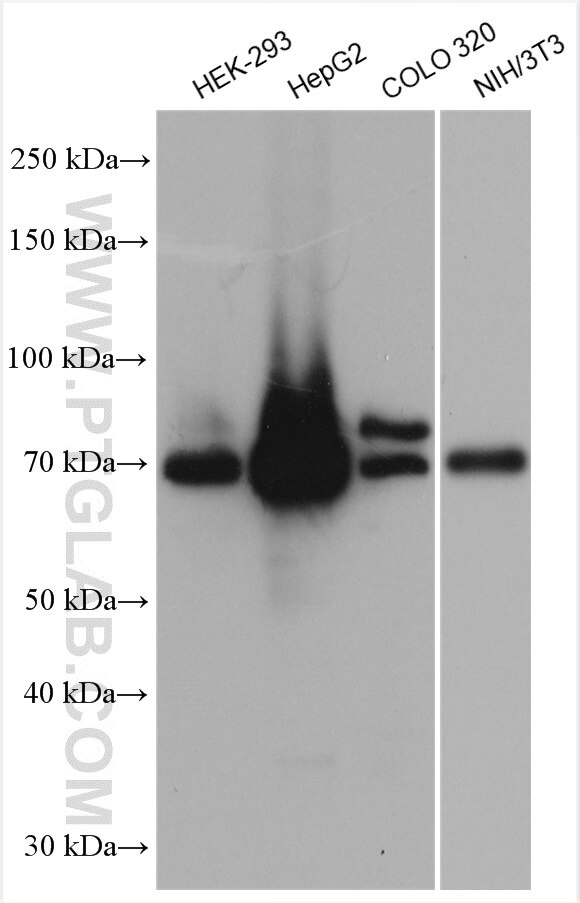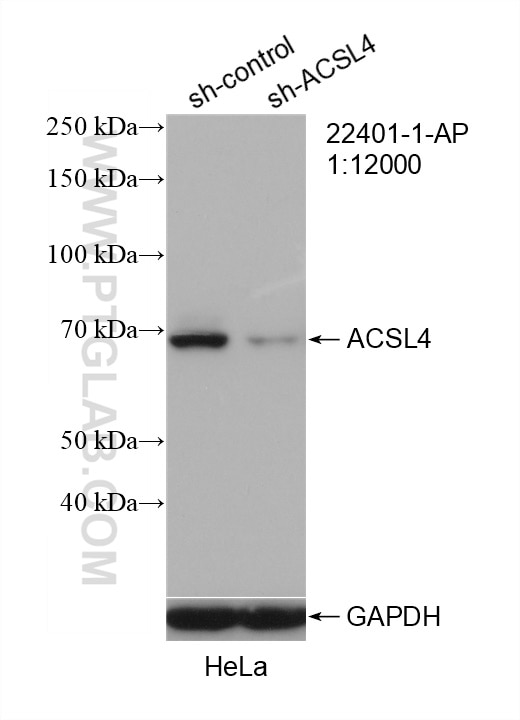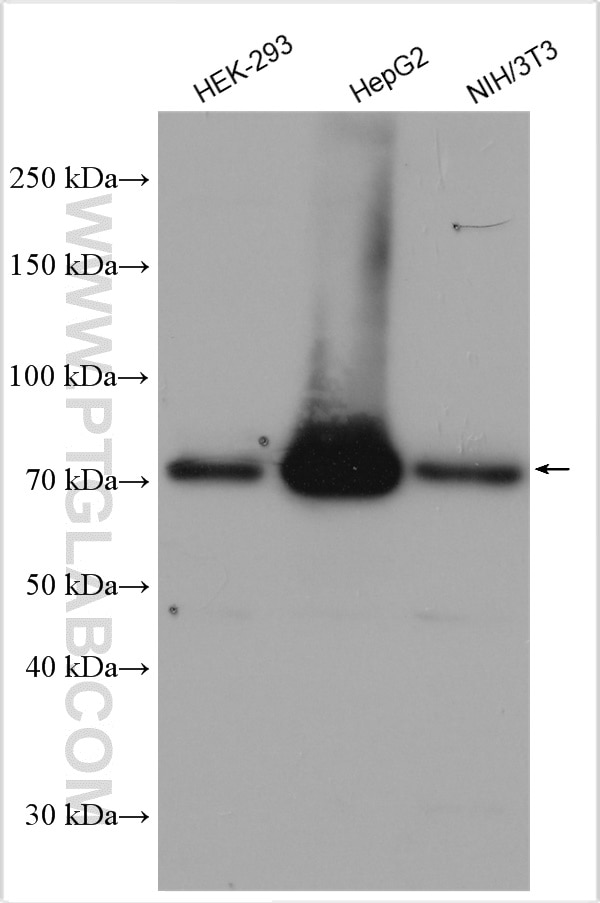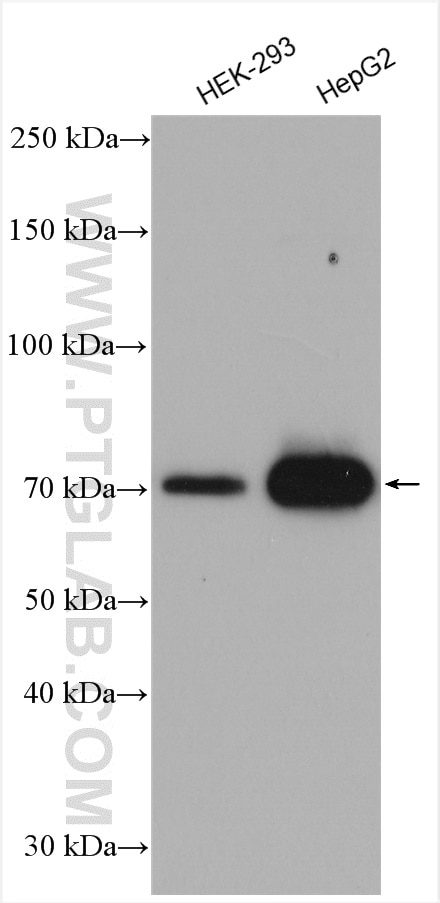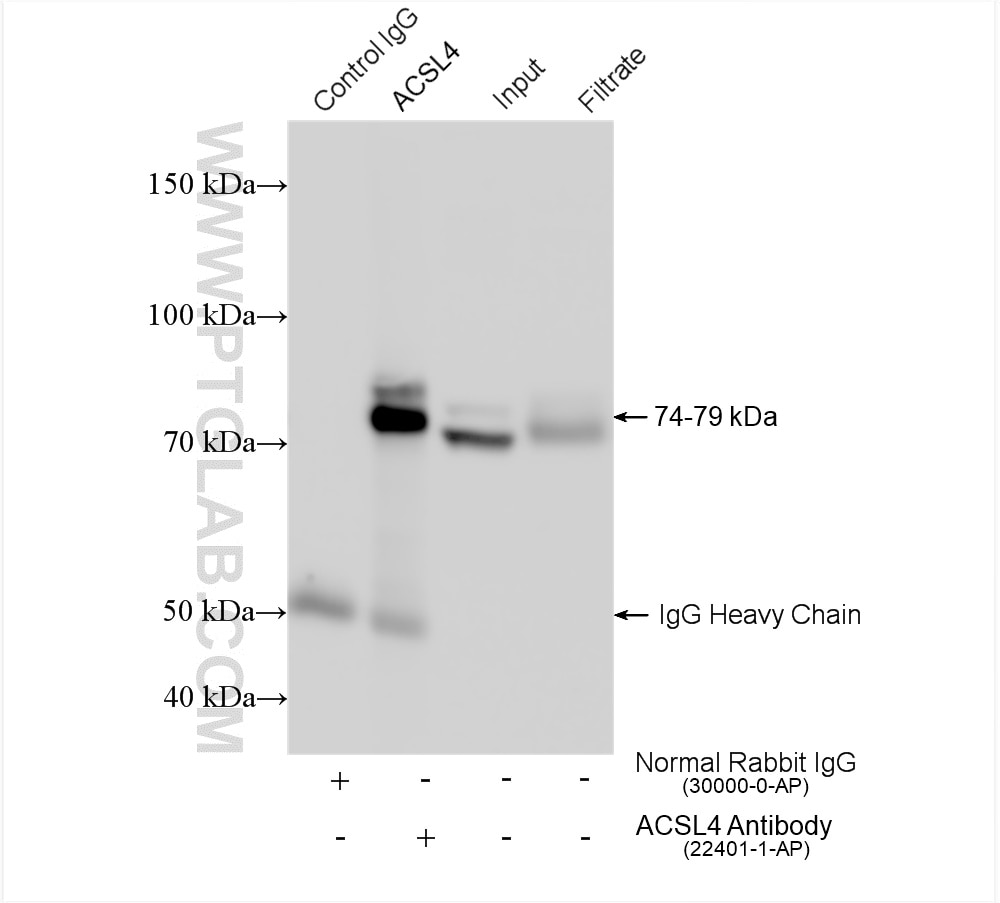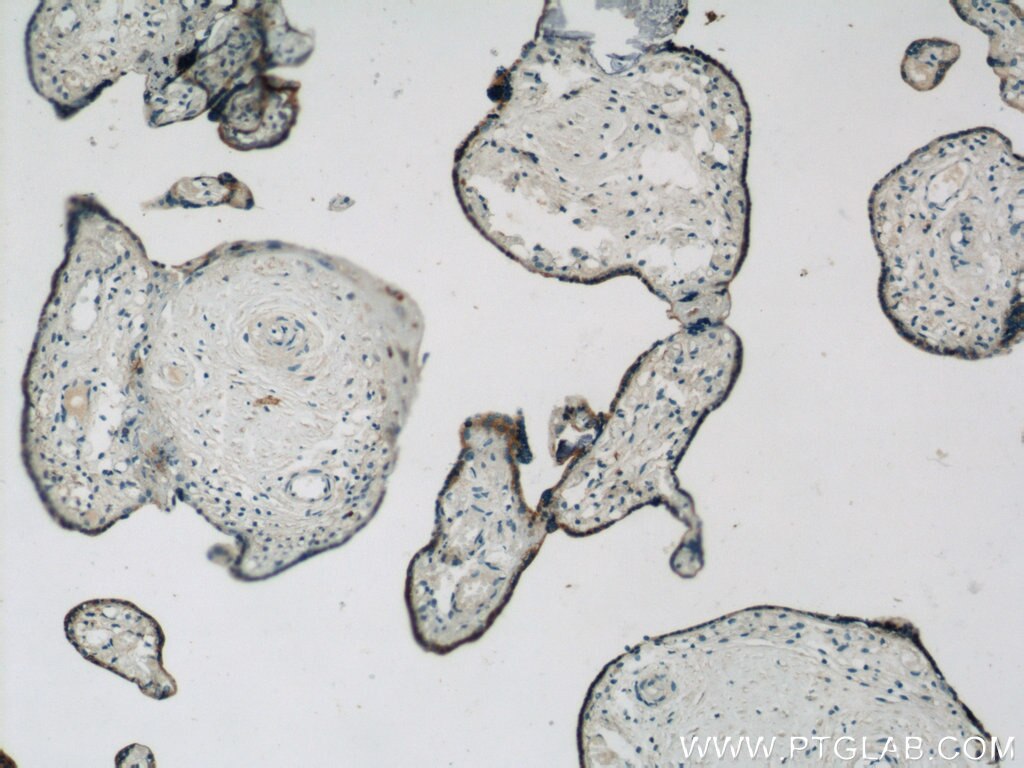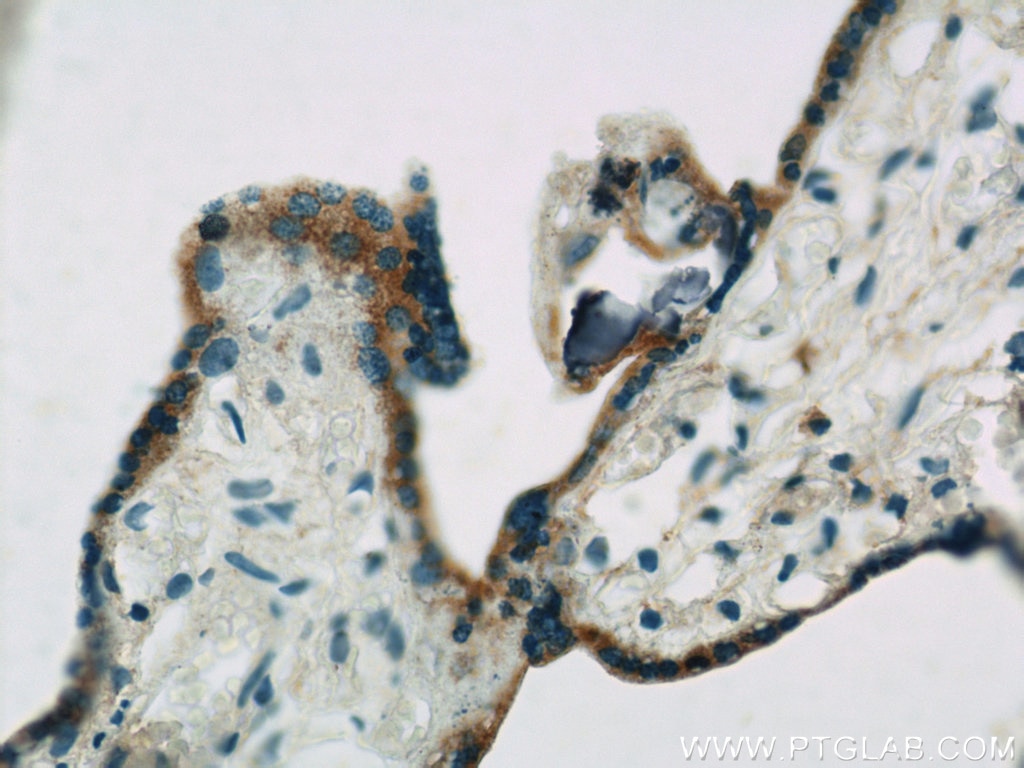- Featured Product
- KD/KO Validated
ACSL4/FACL4 Polyklonaler Antikörper
ACSL4/FACL4 Polyklonal Antikörper für IHC, IP, WB, ELISA
Wirt / Isotyp
Kaninchen / IgG
Getestete Reaktivität
human, Maus, Ratte und mehr (1)
Anwendung
WB, IP, IHC, IF, CoIP, ELISA
Konjugation
Unkonjugiert
Kat-Nr. : 22401-1-AP
Synonyme
Galerie der Validierungsdaten
Geprüfte Anwendungen
| Erfolgreiche Detektion in WB | HEK-293-Zellen, COLO 320-Zellen, HeLa-Zellen, HepG2-Zellen, NIH/3T3-Zellen |
| Erfolgreiche IP | HEK-293-Zellen |
| Erfolgreiche Detektion in IHC | humanes Plazenta-Gewebe Hinweis: Antigendemaskierung mit TE-Puffer pH 9,0 empfohlen. (*) Wahlweise kann die Antigendemaskierung auch mit Citratpuffer pH 6,0 erfolgen. |
Empfohlene Verdünnung
| Anwendung | Verdünnung |
|---|---|
| Western Blot (WB) | WB : 1:2000-1:12000 |
| Immunpräzipitation (IP) | IP : 0.5-4.0 ug for 1.0-3.0 mg of total protein lysate |
| Immunhistochemie (IHC) | IHC : 1:20-1:200 |
| It is recommended that this reagent should be titrated in each testing system to obtain optimal results. | |
| Sample-dependent, check data in validation data gallery | |
Veröffentlichte Anwendungen
| KD/KO | See 4 publications below |
| WB | See 77 publications below |
| IHC | See 17 publications below |
| IF | See 6 publications below |
| IP | See 3 publications below |
| CoIP | See 1 publications below |
Produktinformation
22401-1-AP bindet in WB, IP, IHC, IF, CoIP, ELISA ACSL4/FACL4 und zeigt Reaktivität mit human, Maus, Ratten
| Getestete Reaktivität | human, Maus, Ratte |
| In Publikationen genannte Reaktivität | human, Hausschwein, Maus, Ratte |
| Wirt / Isotyp | Kaninchen / IgG |
| Klonalität | Polyklonal |
| Typ | Antikörper |
| Immunogen | ACSL4/FACL4 fusion protein Ag18085 |
| Vollständiger Name | acyl-CoA synthetase long-chain family member 4 |
| Berechnetes Molekulargewicht | 711 aa, 79 kDa |
| Beobachtetes Molekulargewicht | 79 kDa, 74 kDa |
| GenBank-Zugangsnummer | BC034959 |
| Gene symbol | ACSL4 |
| Gene ID (NCBI) | 2182 |
| Konjugation | Unkonjugiert |
| Form | Liquid |
| Reinigungsmethode | Antigen-Affinitätsreinigung |
| Lagerungspuffer | PBS mit 0.02% Natriumazid und 50% Glycerin pH 7.3. |
| Lagerungsbedingungen | Bei -20°C lagern. Nach dem Versand ein Jahr lang stabil Aliquotieren ist bei -20oC Lagerung nicht notwendig. 20ul Größen enthalten 0,1% BSA. |
Hintergrundinformationen
Acyl-CoA synthetase long-chain family member 4 (Acsl4), an important enzyme involved in lipid metabolism, participates in ferroptosis by converting free AA into arachidonoyl-CoA to generate lipid hydroperoxides. Recent studies revealed that ACSL4 is involved in biological responses including inflammation, steroidogenesis, cell death, female fertility, and cancer. Acsl4 has two isoforms: 79 kDa and 75 kDa. ACSL4 also can be detected in 70 kDa(PMID:35326233).
Protokolle
| Produktspezifische Protokolle | |
|---|---|
| WB protocol for ACSL4/FACL4 antibody 22401-1-AP | Protokoll herunterladen |
| IHC protocol for ACSL4/FACL4 antibody 22401-1-AP | Protokoll herunterladen |
| IP protocol for ACSL4/FACL4 antibody 22401-1-AP | Protokoll herunterladen |
| Standard-Protokolle | |
|---|---|
| Klicken Sie hier, um unsere Standardprotokolle anzuzeigen |
Publikationen
| Species | Application | Title |
|---|---|---|
Cell Res Mitochondria-localized cGAS suppresses ferroptosis to promote cancer progression | ||
Nat Commun URI alleviates tyrosine kinase inhibitors-induced ferroptosis by reprogramming lipid metabolism in p53 wild-type liver cancers | ||
Mol Ther STING/ACSL4 axis-dependent ferroptosis and inflammation promote hypertension-associated chronic kidney disease | ||
EMBO J FUNDC1 regulates mitochondrial dynamics at the ER-mitochondrial contact site under hypoxic conditions. | ||
Redox Biol Non-enzymatic lipid peroxidation initiated by photodynamic therapy drives a distinct ferroptosis-like cell death pathway. | ||
Redox Biol Glia maturation factor-β induces ferroptosis by impairing chaperone-mediated autophagic degradation of ACSL4 in early diabetic retinopathy. |
